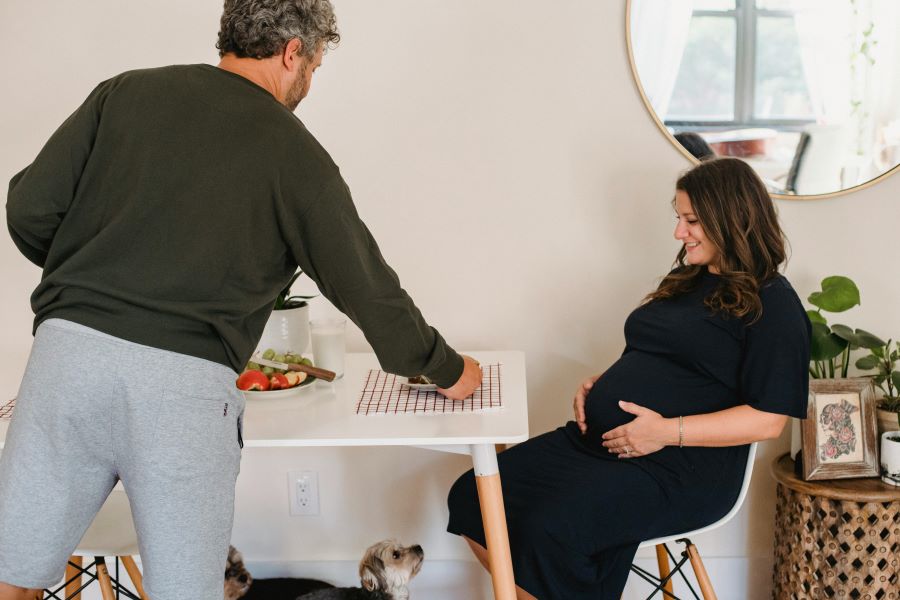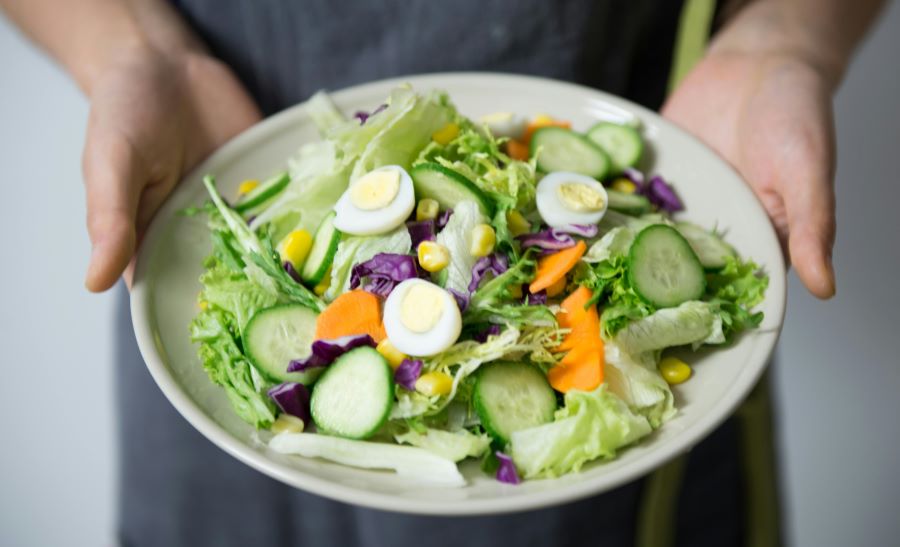Pregnancy is a wild ride, isn’t it? One day you’re craving pickles and ice cream, and the next, you’re worried if that soft cheese you ate was a mistake. If you’re searching for a what to eat and what not to eat when pregnant list, you’re not alone. Many moms-to-be feel a mix of excitement and worry about what’s safe to eat. It’s like walking through a food maze, and every turn matters for you and your baby.
As someone who’s been through this journey, I get it. The advice can feel overwhelming, especially in the first trimester when everything feels new and a bit scary. Let’s walk through this together, with real talk, simple tips, and a what to eat and what not to eat when pregnant chart that makes sense. Think of this as a chat with a friend who’s been there, sharing what she learned along the way.
Why Food Choices Matter During Pregnancy
When someone is pregnant, every bite counts. The body is working overtime, building a tiny human from scratch. It’s like being a chef in a busy kitchen, where every ingredient matters. Some foods can help the baby grow strong, while others might cause problems. That’s why knowing what to eat and what not to eat when pregnant is so important.

During the first trimester, the baby’s organs are forming. This is a sensitive time, and certain foods can carry risks. For example, raw fish or under cooked meat can have bacteria or parasites that might harm the baby. High-mercury fish, like swordfish or king mackerel, can affect the baby’s brain development. Even some cheeses and deli meats can carry listeria, a bacteria that’s risky for pregnant women.
It’s not about being perfect. It’s about making choices that help both mom and baby stay healthy. When I was pregnant, I remember feeling guilty after eating a soft cheese at a family party. My doctor reassured me that one slip isn’t the end of the world, but it’s good to know the risks so you can make better choices next time.
If you’re looking for a list of what to eat and what not to eat when pregnant, think of it as a guide, not a rule book. It’s about giving yourself the best shot at a healthy pregnancy, while still enjoying food and life.
The Big List: What to Eat and What Not to Eat When Pregnant
Let’s get into the nitty-gritty. Here’s a what to eat and what not to eat when pregnant list that covers the main foods to avoid and the best foods to enjoy. This isn’t meant to scare you, but to help you feel confident about your choices.
1. Raw or Undercooked Meat and Fish:
Sushi, rare steak, and raw oysters are off the table for now. These can carry bacteria or parasites like salmonella, toxoplasma, or listeria. Even a small bite can cause big problems during pregnancy.
2. High-Mercury Fish:
Fish is great for you, but some types have too much mercury. Avoid shark, swordfish, king mackerel, and tilefish. Instead, go for salmon, tilapia, or shrimp, which are safer options.
3. Unpasteurized Dairy and Juices:
Soft cheeses like brie, feta, and blue cheese can carry listeria if they’re made from unpasteurized milk. The same goes for unpasteurized juices. Always check the label or ask if you’re not sure.
4. Deli Meats and Hot Dogs:
These can also carry listeria, even if they look cooked. If you really want a sandwich, heat the meat until it’s steaming hot.
5. Raw Eggs:
No more licking the cookie dough bowl! Raw eggs can have salmonella. Watch out for homemade mayo, hollandaise sauce, or tiramisu.
6. Caffeine and Alcohol:
A little caffeine is okay, but too much can affect the baby’s growth. Most doctors say to keep it under 200 mg a day (about one cup of coffee). Alcohol is best avoided completely.
7. Certain Fruits and Veggies:
Raw sprouts (like alfalfa or bean sprouts) can carry bacteria. Wash all fruits and veggies well to avoid pesticides and germs.
8. Liver and Liver Products:
Liver has a lot of vitamin A, which can be too much for the baby. It’s best to skip liver pâté and supplements with high vitamin A.
This what to eat and what not to eat when pregnant chart is a good starting point. If you’re ever unsure, ask your doctor or check trusted sources like Wikipedia’s page on pregnancy.
What to Eat and What Not to Eat When Pregnant: First Trimester Focus
The first trimester is a roller coaster. You might feel tired, queasy, or just plain weird. Food aversions are common, and sometimes all you want is crackers and ginger ale. Still, this is a key time for the baby’s development, so it’s good to know what to avoid.

During these first three months, the baby’s brain, heart, and organs are forming. This means the risks from certain foods are higher. For example, listeria from unpasteurized cheese or deli meats can cross the placenta and cause serious problems. High-mercury fish can affect the baby’s brain. Even a small amount of alcohol can be risky.
When I was in my first trimester, I remember feeling anxious about every meal. My doctor gave me a simple tip: “If you’re not sure, skip it or ask.” That advice helped me relax and focus on what I could eat, instead of worrying about what I couldn’t.
If you’re looking for a what to eat and what not to eat when pregnant first trimester list, focus on the basics:
- No raw or undercooked meat, fish, or eggs
- No unpasteurized dairy or juices
- No high-mercury fish
- No deli meats unless heated
- No alcohol
It’s also a good time to start taking prenatal vitamins and drinking plenty of water. Remember, it’s okay to have cravings and aversions. Listen to your body, and don’t stress if you can’t eat a “perfect” diet every day.
What to Eat and What Not to Eat When Pregnant: Finding Balance
It’s easy to get caught up in the “don’ts,” but let’s talk about the “do’s” too. Pregnancy is a time to nourish yourself and your baby. While it’s important to know what to eat and what not to eat when pregnant, it’s just as important to focus on what you can enjoy.
Eat plenty of:
- Fresh fruits and veggies (washed well)
- Whole grains like brown rice, oats, and whole wheat bread
- Lean proteins such as chicken, beans, and eggs (cooked well)
- Dairy products like milk, yogurt, and hard cheese (pasteurized)
- Healthy fats from nuts, seeds, and avocados
If you’re looking for a what to eat and what not to eat when pregnant guide, think of your plate as a rainbow. The more colors, the better. Each color brings different vitamins and minerals that help your baby grow.
One thing I learned is that every pregnancy is different. Some days, all I could eat was toast and bananas. Other days, I craved salads and grilled chicken. The key is to listen to your body and aim for balance over time, not perfection every day.
If you’re worried about missing out on certain foods, talk to your doctor or a local dietitian. They can help you find safe swaps and make sure you’re getting what you need.
Local and Cultural Food Tips: Eating Safely Around the World
Food traditions are a big part of pregnancy. In some cultures, certain foods are believed to help with morning sickness or bring good luck. In others, there are special dishes for new moms. It’s important to respect these traditions, but also to know which foods might be risky.
For example, in some Asian countries, raw fish is a common part of the diet. During pregnancy, it’s best to skip sushi and sashimi, even if it’s a family favorite. In Latin America, unpasteurized cheeses like queso fresco are popular, but they can carry listeria. In the Middle East, liver dishes are sometimes served to pregnant women, but too much vitamin A can be harmful.

If you’re living in a place with different food safety rules, check with your doctor or a local health authority. They can help you make safe choices while still enjoying your favorite foods.
When I was pregnant, my family made a big pot of chicken soup every week. It was comforting, easy to digest, and full of nutrients. Finding safe, traditional foods can make pregnancy feel special and connected to your roots.
FAQ’s
1. Can I eat seafood when pregnant?
Yes, but choose low-mercury options like salmon, shrimp, and tilapia. Avoid high-mercury fish such as swordfish and king mackerel.
2. Is it safe to eat cheese during pregnancy?
Hard cheeses and pasteurized soft cheeses are safe. Avoid unpasteurized cheeses like brie, feta, and blue cheese.
3. How much caffeine is okay during pregnancy?
Most experts say up to 200 mg a day is safe, which is about one cup of coffee. Try to limit energy drinks and strong teas.
4. What should I do if I accidentally eat something unsafe?
Don’t panic. Most of the time, a small slip won’t cause harm. If you feel sick or have symptoms like fever or vomiting, call your doctor.
5. Are herbal teas safe during pregnancy?
Some are, but others can be risky. Stick to teas like ginger or peppermint, and avoid ones with unknown herbs. Always check with your doctor.
Final Thoughts: Trust Yourself and Enjoy the Journey
Pregnancy is full of questions, and food is a big one. Knowing what to eat and what not to eat when pregnant helps you feel more confident and relaxed. Remember, it’s about making the best choices you can, not being perfect.
If you’re ever unsure, ask your doctor or check trusted sources like Wikipedia’s pregnancy page. Listen to your body, enjoy the foods you love (safely), and don’t be too hard on yourself. Every mom’s journey is different, and that’s what makes it special.
So, next time you’re staring at a menu or grocery shelf, remember: you’ve got this. With a little knowledge and a lot of love, you and your baby are on the right path.

